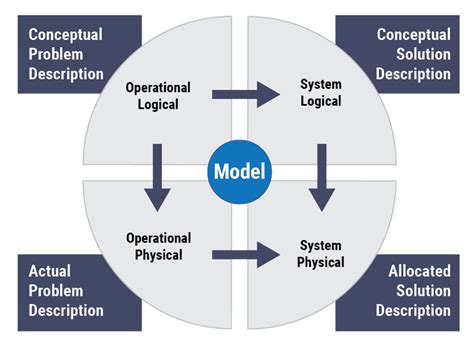In the rapidly evolving world of technology and engineering, professionals are constantly seeking ways to advance their careers and stay ahead of the curve. Systems engineering has emerged as a highly sought-after discipline, offering a unique blend of technical expertise and leadership skills. Before making the decision to transition to this field, it’s crucial to carefully consider your motivations, skills, and career goals.

Understanding Systems Engineering
Systems engineering is a holistic approach to designing, developing, integrating, and operating complex systems. It involves analyzing the system’s requirements, synthesizing a solution, verifying its performance, and validating its effectiveness. Systems engineers work across multiple disciplines, bridging the gap between technical expertise and stakeholder needs.
Benefits of Systems Engineering
- High Demand: Systems engineers are in high demand across various industries, including aerospace, automotive, manufacturing, and healthcare. The Bureau of Labor Statistics projects a 10% growth in employment for systems engineers from 2021 to 2031.
- Cross-Functional Collaboration: Systems engineers work closely with engineers, scientists, product managers, and other professionals, fostering a collaborative environment and enhancing teamwork.
- Problem-Solving Skills: Systems engineering requires a strong ability to identify and solve complex problems, making it an excellent career choice for individuals with analytical and problem-solving abilities.
- Leadership and Management: Systems engineers often take on leadership roles in project management, risk assessment, and stakeholder management, developing both technical and managerial skills.
- Higher Earning Potential: Systems engineers typically earn higher salaries than engineers in other disciplines. According to Glassdoor, the average salary for a systems engineer in the United States is around $114,000 per year.
Skills Required for Systems Engineering
To succeed as a systems engineer, you should possess the following skills:
- Technical Proficiency: Strong understanding of engineering principles, mathematics, and computer science.
- Systems Thinking: Ability to view a system as a whole and understand its interdependencies.
- Leadership and Communication: Effective communication and interpersonal skills, as well as the ability to motivate and lead teams.
- Analytical Skills: Ability to analyze complex problems, identify root causes, and develop solutions.
- Project Management: Knowledge of project management tools and techniques, including planning, scheduling, and risk assessment.
Career Path Options
A systems engineer can pursue a variety of career paths, including:
- Systems Architect: Design and define the overall system architecture, including functional requirements and system boundaries.
- Systems Integrator: Integrate different components and subsystems into a working system.
- Systems Tester: Verify and validate the system’s performance against requirements.
- Project Manager: Lead and manage systems engineering projects from inception to completion.
- Technical Lead: Provide technical guidance and expertise to engineering teams.
Transitioning to Systems Engineering
If you’re considering transitioning to systems engineering, consider the following steps:
- Identify Your Motivation: Understand why you want to make the switch and what you hope to gain from it.
- Assess Your Skills: Evaluate your existing skills and determine which areas you need to strengthen.
- Gain Experience: Seek opportunities to work on projects that involve systems engineering principles.
- Take Courses or Certifications: Consider enrolling in systems engineering courses or obtaining relevant certifications to enhance your knowledge and credibility.
- Network and Connect: Attend industry events, join professional organizations, and connect with systems engineers to learn about their experiences and career paths.
Considerations for Transitioning
Before transitioning to systems engineering, there are a few important considerations:
- Time Commitment: Acquiring the necessary skills and knowledge takes time and effort.
- Competitive Market: The systems engineering market is competitive, so it’s important to have a strong skill set and network.
- Career Flexibility: Systems engineers may need to work on a variety of projects, which can require flexibility in terms of location and schedule.
- Corporate Culture: Research the corporate culture of potential employers to ensure it aligns with your values and work style.
- Financial Implications: Consider the potential costs associated with transitioning, such as coursework or certification fees.
Conclusion
Whether or not to transition to systems engineering is a personal decision that depends on your individual motivations, skills, and career goals. By carefully considering the benefits, skills, career path options, and transition considerations discussed in this article, you can make an informed decision that will help you achieve your professional aspirations.
Additional Information
Tables:
| Characteristic | Systems Engineering | Other Engineering Disciplines |
|---|---|---|
| Focus | Holistic view of system as a whole | Individual components and subsystems |
| Approach | Cross-functional collaboration | Specialized knowledge within a specific field |
| Skills | Leadership, problem-solving, communication | Technical expertise, design, implementation |
| Career Path | Leadership roles, project management | Technical roles, individual contributors |
| Industry | Systems Engineering Job Growth (2021-2031) |
|---|---|
| Aerospace | 9% |
| Automotive | 10% |
| Manufacturing | 12% |
| Healthcare | 14% |
| Skill | Importance for Systems Engineering |
|---|---|
| Systems Thinking | Essential |
| Leadership | High |
| Analytical Skills | High |
| Communication | High |
| Project Management | Medium |
| Certification | Benefits |
|---|---|
| INCOSE Systems Engineering Professional (SEP) | Industry-recognized credential |
| IIBA Certified Business Analysis Professional (CBAP) | Demonstrates business analysis skills |
| PMI Project Management Professional (PMP) | Proves project management expertise |
Quotes from Authoritative Sources:
- “Systems engineering is the key to unlocking value in complex systems.” – International Council on Systems Engineering (INCOSE)
- “The demand for systems engineers is growing rapidly, driven by the increasing complexity of systems across industries.” – Bureau of Labor Statistics
- “Systems engineers play a critical role in managing risk and ensuring project success.” – Institute of Electrical and Electronics Engineers (IEEE)
